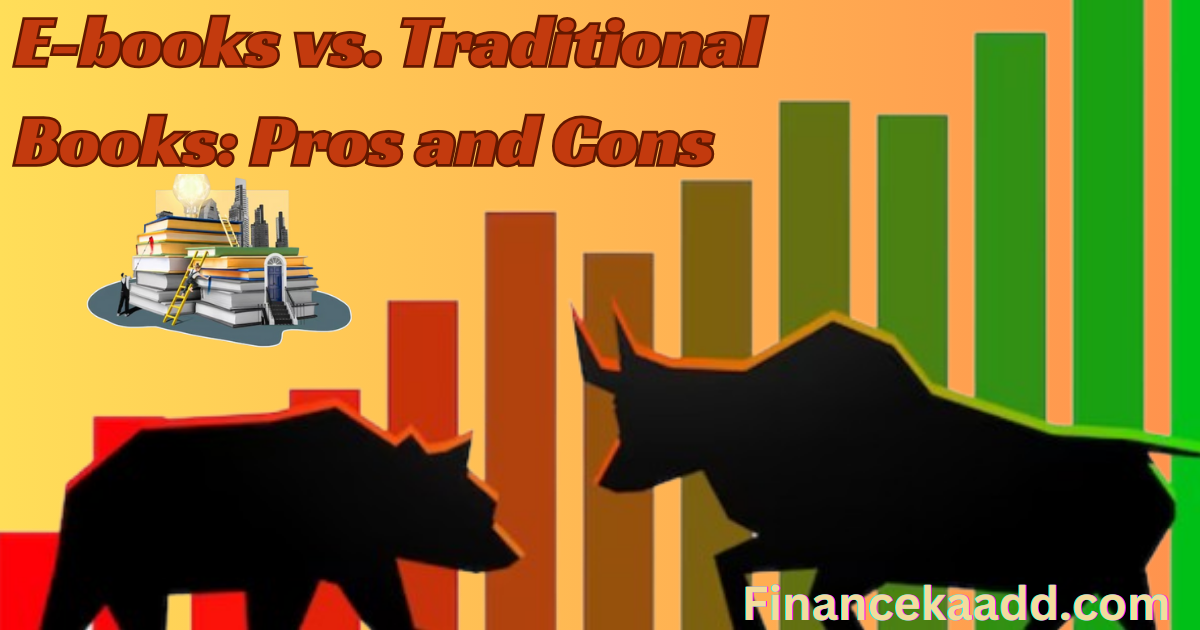The journey of stock market books investment can be overwhelming for newcomers, but armed with the right knowledge, it transforms into an empowering odyssey toward financial triumph. Delving into the realm of the best stock market books is a pivotal step in unraveling the secrets of profitable investing. This article is your compass, navigating through top-notch literature that not only educates but also steers investors toward financial prosperity.
Stock Market Books Financial Wisdom: The Importance of Knowledge
Navigating the stock market without guidance is akin to traversing uncharted waters. Acquiring knowledge in this domain is paramount, and fortunately, a plethora of books are tailor-made to equip individuals with the essential skills needed to thrive in the stock market.
The Role of Reading in Stock Market Education
Understanding why reading is indispensable in stock market education is crucial before delving into our curated list. Books offer profound insights, diverse perspectives, and a structured learning approach absent in other information mediums. They serve as foundational resources for beginners and seasoned investors alike.
Must-Read Stock Market Books: Your Path to Proficiency
“The Intelligent Investor” by Benjamin Graham
This timeless classic lays the groundwork for comprehending value investing and principles of sound financial management, remaining as relevant today as it was in its first publication.
“A Stroll Through Wall Street” by Burton Malkiel
Malkiel’s book introduces the random walk theory and underscores the importance of a diversified portfolio, making it an excellent resource for those grasping the basics of investing.
“Common Stocks and Uncommon Profits” by Philip Fisher
Fisher’s focus on qualitative aspects of investing stresses thorough company research before investment—an indispensable read for those interested in long-term investing.
For those keen on understanding technical analysis, Murphy’s comprehensive guide simplifies complex chart patterns and technical indicators, making it accessible for beginners.
“Market Wizards” by Jack D. Schwager
Schwager’s unique approach features interviews with successful traders, providing valuable insights into diverse strategies, making it an engaging and informative read.
Mastering Analysis for Informed Decisions
While the above books cover a spectrum of topics, understanding fundamental analysis is paramount for informed investment decisions. Fundamental analysis evaluates a company’s financial health, management, and competitive position.
Simplifying Technical Analysis
On the flip side, technical analysis involves studying historical price and volume data to predict future price movements. A well-rounded understanding of both fundamental and technical analysis is essential.
Strategies for Effective Risk Management
Investing inherently involves risk, and adept investors know how to manage and mitigate it. Diversification, setting stop-loss orders, and having a clear exit strategy are key elements of effective risk management.
Unveiling the Psychology of Trading
Understanding the psychology of trading is often underestimated. Successful investors master not only financial analysis but also comprehend their own psychological biases.
Tailoring Investment Strategies to Risk Appetites
Investors possess varying risk tolerances, and a one-size-fits-all approach doesn’t exist. This section explores different investment strategies based on risk appetite, aligning readers’ approaches with their comfort levels.
Learning through Real-Life Success Stories
Effective learning often occurs through practical examples. Highlighting real-life success stories can inspire and motivate, showcasing individuals who achieved significant financial success through strategic stock market investments.
RICH DAD POOR DAD👉BUY NOW
Avoiding Common Pitfalls
In the pursuit of financial success, beginners often fall into traps. This section sheds light on mistakes to avoid, such as emotional decision-making, chasing trends, and neglecting due diligence.
Staying Informed in a Dynamic Market
Staying informed is crucial in a dynamic stock market. Practical tips on staying updated with market trends, news, and economic indicators are provided in this section.
E-books vs. Traditional Books: An In-Depth Comparison
With technology’s rise, e-books gained popularity. However, traditional books possess their charm. This section weighs the pros and cons, allowing readers to choose what suits them best.
Crafting Your Personalized Reading List
Armed with knowledge from top stock market books, readers can build a personalized reading list. This section guides them in curating a collection aligning with specific interests and goals.
Applying Knowledge to Investment Strategies
Reading is the first step; applying gained knowledge is the key to success. Practical tips on translating bookish knowledge into actionable investment strategies are offered in this section.
Embracing the Journey to Financial Mastery
The path to becoming a successful investor is an ongoing evolution. Education acts as the compass, guiding investors through stock market complexities. From managing risks to understanding market psychology, each step contributes to holistic investor development.
As the financial landscape evolves, so must strategies. Commitment to continuous learning remains the cornerstone of sustained success in the ever-changing stock market. Embrace the journey, learn from experiences, and let acquired knowledge pave the way to financial mastery.
Embarking on the stock market journey can be overwhelming, especially for newcomers. Yet, armed with the right knowledge, this challenge transforms into a lucrative opportunity for financial prosperity. In this piece, we unravel the importance of stock market education and delve into an array of top-notch stock market books tailored to investors at all levels.
The Crucial Basics: Foundation for Success
Grasping Fundamental Concepts
Before navigating the intricacies of the stock market, a solid understanding of the basics is paramount. Comprehensive guides in the form of books break down essential concepts, including market analysis, risk management, and portfolio diversification.
Advanced Strategies: Elevating Your Game
Insights for Seasoned Investors
For those eager to enhance their skills, delve into advanced strategy books. These resources unravel intricate techniques like options trading, short selling, and leveraging—an indispensable arsenal for investors keen on elevating their game.
Learning from Investment Legends
Biographies and memoirs of successful investors offer priceless lessons. Explore the mindset, decisions, and experiences of investment legends such as Warren Buffett and Peter Lynch through their written accounts.
THINK AND GROW RICH👉BUY NOW
Top Picks for Beginners: Building the Foundation
“A Beginner’s Guide to Investing”
This foundational book adopts a step-by-step approach, making it an ideal companion for stock market novices. It covers terminology, risk management, and basic investment strategies.
“Stock Market 101”
Tailored for beginners, this book simplifies complex concepts, ensuring a seamless transition into the world of stock trading—an excellent starting point for those unfamiliar with market jargon.
“The Intelligent Investor” Review
A classic by Benjamin Graham, this book offers timeless wisdom on value investing. We delve into its key principles and discuss their relevance in today’s dynamic market.
THE DHANDHO INVESTOR👉BUY NOW
Intermediate Level: Digging Deeper
“Common Stocks and Uncommon Profits” Insights
This intermediate-level book delves into growth investing strategies. Learn to identify companies with high growth potential and make informed investment decisions.
“One Up On Wall Street” Analysis
Peter Lynch’s classic is a must-read for investors aiming to outperform the market. We analyze Lynch’s investment approach and its application to modern-day investing.
Incorporating Technical Analysis
For those keen on understanding stock price movements, delve into books on technical analysis. Gain essential knowledge on interpreting charts, trends, and patterns for strategic decision-making.
Advanced Techniques: Mastering the Game
Options Trading Strategies
Explore the world of options trading with advanced strategies. Learn how options can be utilized for risk management, income generation, and leveraging existing positions.
“Reminiscences of a Stock Operator” Exploration
Based on Jesse Livermore’s life, this book provides insights into the mindset of a successful trader. Explore the psychological aspects of trading and lessons from Livermore’s experiences.
Risk Management in Stock Trading
Mastering risk is crucial for long-term success. Advanced books on risk management guide investors in developing strategies to protect their capital in various market conditions.
THE EDUCATION OF A VALUE INVESTOR👉BUY NOW
Learning from the Legends: Author Spotlights
Peter Lynch’s Approach
Dive into the investment philosophy of Peter Lynch, renowned for his success at Fidelity Magellan Fund. Understand his “invest in what you know” mantra and how it shaped his impressive track record.
Warren Buffett’s Investment Philosophy
Explore the principles underpinning Warren Buffett’s investing prowess. Discover the importance of value investing, economic moats, and a long-term perspective for sustainable returns.
Benjamin Graham’s Impact on Value Investing
As the father of value investing, Benjamin Graham’s influence is undeniable. We explore his timeless principles and their continued relevance in the contemporary investment landscape.
E-books vs. Traditional Books: Pros and Cons
Accessibility and Convenience of E-books
Discuss the advantages of e-books, including accessibility, portability, and interactive features catering to tech-savvy readers.
Tangibility and Advantages of Physical Books
Highlight the benefits of traditional books, such as the sensory experience, collection aesthetics, and independence from electronic devices.
LEARN TO EARN👉BUY NOW
The Evolving Landscape: Online Resources
Blogs, Forums, and Their Role
Beyond books, online platforms like blogs and forums offer dynamic discussions, real-time insights, and a sense of community. Explore the synergies between traditional literature and digital resources.
Educational Websites for Stock Market Enthusiasts
Identify reputable websites complementing book learning, providing updated market news, tutorials, and interactive tools for a well-rounded educational experience.
Setting Realistic Reading Goals
Guide readers in setting achievable reading goals based on their experience level, time constraints, and desired depth of knowledge.
Taking Notes and Applying Knowledge
Emphasize the importance of active reading through note-taking and practical application of concepts. This ensures a deeper understanding and retention of valuable information.
THE INTELLIGENT INVESTOR👉BUY NOW
Challenges and Pitfalls: Addressing Common Concerns
Overcoming Information Overload
Acknowledge the abundance of information available and provide strategies for readers to navigate and filter through the noise to find the most relevant content.
Dealing with Conflicting Advice
Address the reality of conflicting advice in stock market literature. Guide readers on critically evaluating conflicting viewpoints for informed decision-making.
Balancing Theory with Real-World Experience
Emphasize the importance of combining theoretical knowledge from books with real-world experience. Share insights on how practical application enhances understanding and decision-making.
Conclusion
In the ever-evolving landscape of the stock market, continuous learning is the key to success. The journey from novice to expert involves embracing a variety of resources, with books playing a central role. Whether you’re a beginner building a strong foundation or an experienced investor mastering advanced strategies, the right stock market books can be your most valuable companions.
Frequently Asked Questions
Q: Should I exclusively rely on stock market books for my investment education?
Ans: While books offer valuable insights, it’s beneficial to supplement your education with diverse resources. Consider incorporating real-world experience, online forums, and expert insights to gain a comprehensive understanding.
Q: Can I learn about the stock market through online platforms instead of books?
Ans: Absolutely. Online platforms, such as blogs, forums, and educational websites, provide dynamic discussions and real-time insights. They can complement traditional literature and offer a more interactive learning experience.
Q: What are the common pitfalls to avoid as a beginner investor?
Ans: Beginners should be cautious of emotional decision-making, following trends blindly, and neglecting thorough due diligence. Understanding and avoiding these pitfalls contribute significantly to long-term success.
Q: Is there a specific order in which I should read stock market books?
Ans: Not necessarily. Start with foundational books for beginners, gradually progressing to more advanced literature as you gain confidence and expertise. Tailor your reading list to your current knowledge level and learning objectives.
Q: How do I stay updated on the latest stock market trends and news?
Ans: Utilize a combination of sources, including financial news websites, market analysis reports, and reputable investment platforms. Stay engaged with ongoing developments to make informed decisions in the ever-changing market landscape.
Q: Can I develop my own investment strategy based on what I learn from books?
Ans: Absolutely. As you accumulate knowledge, crafting a personalized investment strategy becomes crucial. Tailor it to your risk tolerance, financial goals, and the insights gained from your readings and experiences.
Q: Are there specific stock market books recommended for advanced investors?
Ans: Indeed. Advanced investors can benefit from books that delve into complex strategies, in-depth analyses, and case studies. Look for literature that aligns with your specific areas of interest within the stock market.
Q: Should I focus on one investment strategy, or is diversification advisable?
Ans: Diversification is generally advisable to mitigate risk. While focusing on a particular strategy can be beneficial, spreading your investments across various assets can provide a more balanced and resilient portfolio.
Q: Can I apply the principles learned from stock market books to other forms of investment?
Ans: Many principles, such as risk management and fundamental analysis, are transferable to various forms of investment. However, it’s essential to adapt these principles to the specific dynamics of the investment type you’re considering.
Q: Is continuous learning essential even for experienced investors?
Ans: Absolutely. The stock market is dynamic, and staying abreast of evolving trends, technologies, and economic shifts is crucial for sustained success. Continuous learning ensures you remain agile and adaptable in your investment strategies.


